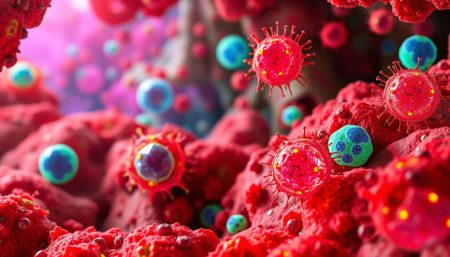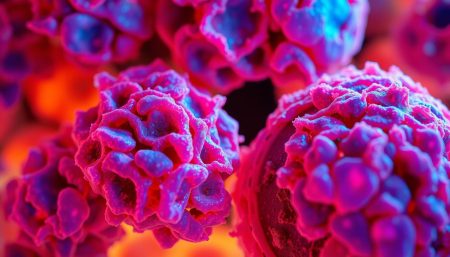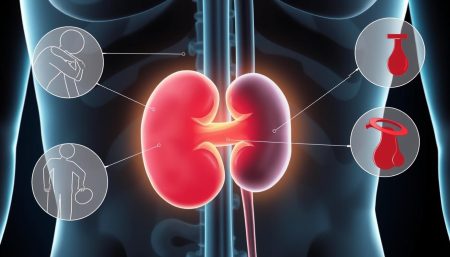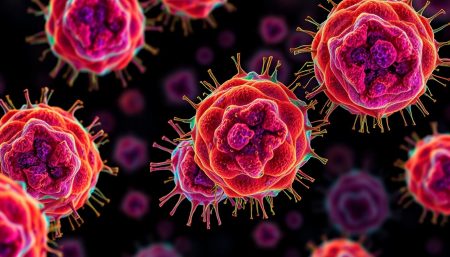CAR T-cell therapy is a new way to fight cancer. It uses the body’s immune system to attack cancer cells. This therapy has shown great success in treating some blood cancers, giving hope to many.
As more people learn about CAR T-cell therapy, it’s important to know where to find it. We need to know which places specialize in this treatment.
In this guide, we’ll look at top CAR T-cell therapy centers in the U.S. We’ll talk about FDA-approved treatments, who can get them, and how to get them. This information is key for patients, caregivers, and doctors to understand.
We’ll also dive into the details of CAR T-cell therapy locations. We’ll show you the expertise and resources each center offers. By the end, you’ll know where to find this life-changing therapy and what to expect.
Understanding CAR T-Cell Therapy and Its Availability
CAR T-cell therapy is a new way to fight cancer. It uses a patient’s own immune system. T-cells, a type of white blood cell, are changed to find and kill cancer cells.
This therapy is getting more common, but it’s not everywhere yet. It’s mainly for blood cancers like leukemia and lymphoma. But, it’s only in places with the right skills and equipment.
Right now, CAR T-cell therapy is mostly found in top cancer centers. These places have the know-how and setup to give this treatment. They’ve been trained and certified to make sure it works well.
“CAR T-cell therapy represents a major breakthrough in cancer treatment, giving hope to those who’ve tried everything else.” – Dr. Stephan Grupp, Director of the Cancer Immunotherapy Program at Children’s Hospital of Philadelphia
As research grows and making the treatment gets better, more places will offer it. Knowing where to find CAR T-cell therapy is key for patients and their families. It’s important for those looking into this new cancer treatment.
FDA-Approved CAR T-Cell Therapies and Their Indications
The FDA has approved several groundbreaking CAR T-cell therapies for treating various blood cancers. These therapies have shown remarkable results in patients who have tried other treatments. Each therapy targets specific blood cancers, giving hope to patients and their families.

The following table summarizes the currently FDA-approved CAR T-cell therapies and their indications:
| Therapy | Indications |
|---|---|
| Kymriah (tisagenlecleucel) |
|
| Yescarta (axicabtagene ciloleucel) |
|
| Tecartus (brexucabtagene autoleucel) |
|
| Breyanzi (lisocabtagene maraleucel) | Relapsed or refractory large B-cell lymphoma in adults |
| Abecma (idecabtagene vicleucel) | Relapsed or refractory multiple myeloma in adults who have received at least four prior lines of therapy |
Kymriah (tisagenlecleucel)
Kymriah, developed by Novartis, was the first CAR T-cell therapy to receive FDA approval in August 2017. It is used for treating relapsed or refractory B-cell acute lymphoblastic leukemia (ALL) in patients up to 25 years old. It is also used for relapsed or refractory large B-cell lymphoma in adults.
Yescarta (axicabtagene ciloleucel)
Yescarta, developed by Kite Pharma (a Gilead company), received FDA approval in October 2017. It is used for treating relapsed or refractory large B-cell lymphoma in adults. It is also used for relapsed or refractory follicular lymphoma in adults.
Tecartus (brexucabtagene autoleucel)
Tecartus, also developed by Kite Pharma, received FDA approval in July 2020. It is used for treating relapsed or refractory mantle cell lymphoma in adults. In October 2021, it received an additional approval for treating relapsed or refractory B-cell precursor acute lymphoblastic leukemia (ALL) in adults.
Breyanzi (lisocabtagene maraleucel)
Breyanzi, developed by Bristol Myers Squibb, received FDA approval in February 2021. It is used for treating relapsed or refractory large B-cell lymphoma in adults.
Abecma (idecabtagene vicleucel)
Abecma, developed by Bristol Myers Squibb and bluebird bio, received FDA approval in March 2021. It is used for treating relapsed or refractory multiple myeloma in adults who have tried at least four other treatments.
“The approval of these CAR T-cell therapies marks a significant milestone in the fight against blood cancers, giving hope to patients who have exhausted other treatment options.” – Dr. Stephen Schuster, Director of the Lymphoma Program at the University of Pennsylvania’s Abramson Cancer Center
As research continues, more CAR T-cell therapies are expected to be developed and approved. This will help treat even more cancers with this innovative approach.
Leading CAR T-Cell Therapy Treatment Centers in the United States
The United States is home to top cancer treatment centers. They offer cutting-edge CAR T-cell therapy. These centers are key in advancing this treatment and giving hope to patients with blood cancers.
Dana-Farber Cancer Institute in Boston and Memorial Sloan Kettering Cancer Center in New York are leaders. They are at the forefront of CAR T-cell therapy research and trials. Their work has greatly helped in developing this treatment.
Dana-Farber Cancer Institute (Boston, MA)
Dana-Farber has been key in CAR T-cell therapy. Its researchers helped develop Kymriah, the first FDA-approved CAR T-cell therapy. The institute is leading many clinical trials and research to improve this treatment.
Memorial Sloan Kettering Cancer Center (New York, NY)
Memorial Sloan Kettering is a world leader in cancer care. It has been a leader in CAR T-cell therapy research and treatment. Its expertise and facilities make it a top choice for patients.
University of Pennsylvania’s Abramson Cancer Center (Philadelphia, PA)
The Abramson Cancer Center at the University of Pennsylvania is a pioneer in CAR T-cell therapy. Its researchers developed Kymriah. The center is leading research and trials, pushing the limits of this treatment.
MD Anderson Cancer Center (Houston, TX)
MD Anderson Cancer Center is a leading institution in CAR T-cell therapy. It has expert oncologists and state-of-the-art facilities. The center is at the forefront of research and treatment, giving hope to patients with advanced blood cancers.
“The leading CAR T-cell therapy centers in the United States are not only providing life-saving treatments to patients but are also driving the future of cancer care through their groundbreaking research and clinical trials.” – Dr. James Wilson, CAR T-cell therapy expert
These leading CAR T-cell therapy centers, along with others, are changing cancer treatment. They offer new hope to patients who have tried other treatments.
Global Availability of CAR T-Cell Therapy
CAR T-cell therapy is showing great success in treating blood cancers. It’s becoming more available worldwide. Countries outside the U.S. are starting to use this treatment, thanks to regulatory approvals and new treatment centers.
In Europe, the European Medicines Agency (EMA) has okayed CAR T-cell therapies like Kymriah and Yescarta. These are for certain types of leukemia and lymphoma. Countries like the U.K., Germany, France, Italy, and Spain are leading in this area. They have many treatment centers.

Asia-Pacific countries are also moving forward with CAR T-cell therapy. China, Japan, and Australia have approved CAR T-cell products. They also have treatment centers for patients. These countries are involved in research to improve CAR T-cell therapy.
Canada has also approved CAR T-cell therapies and has treatment centers. The world is seeing more CAR T-cell therapy as countries invest in it. This means more patients can get this life-saving treatment.
“The global expansion of CAR T-cell therapy availability is a testament to the incredible progress being made in the fight against cancer. It offers hope to patients around the world who may benefit from this revolutionary treatment.”
As CAR T-cell therapy becomes more available, it’s important for patients and healthcare providers to stay updated. Knowing about international treatment centers can help patients get the best treatment for their cancer.
Criteria for Selecting a CAR T-Cell Therapy Treatment Center
When looking at CAR T-cell therapy centers, several important factors matter. These include the center’s experience, their team, support services, and clinical trials.
Experience and Expertise in CAR T-Cell Therapy
Choosing a CAR T-cell therapy center is key. Look for centers with a good track record in treating your condition. They should know how to handle side effects well.
Multidisciplinary Team Approach
CAR T-cell therapy needs a team of experts. A great center has doctors, nurses, and support staff working together. This team ensures your care is well-coordinated and meets your needs.
Patient Support Services
Dealing with CAR T-cell therapy can be tough. Top centers offer many support services. These include:
- Educational resources to understand your treatment
- Emotional support and counseling
- Help with lodging and travel
- Financial and insurance help
Participation in Clinical Trials
Centers in clinical trials lead in CAR T-cell therapy research. They offer the newest treatments and care methods. This means you get the best care available.
Choosing the right CAR T-cell therapy center is a critical decision that can significantly impact your treatment experience and outcomes.
By looking at experience, team, support, and trials, you can choose wisely. This ensures you get the best care possible.
The Process of Receiving CAR T-Cell Therapy
Getting CAR T-cell therapy is a detailed process. It starts with a first meeting and check-up. Here, patients talk with their healthcare team about the treatment’s risks and benefits.
The team looks at the patient’s health history and does tests. They then make a treatment plan just for that person.
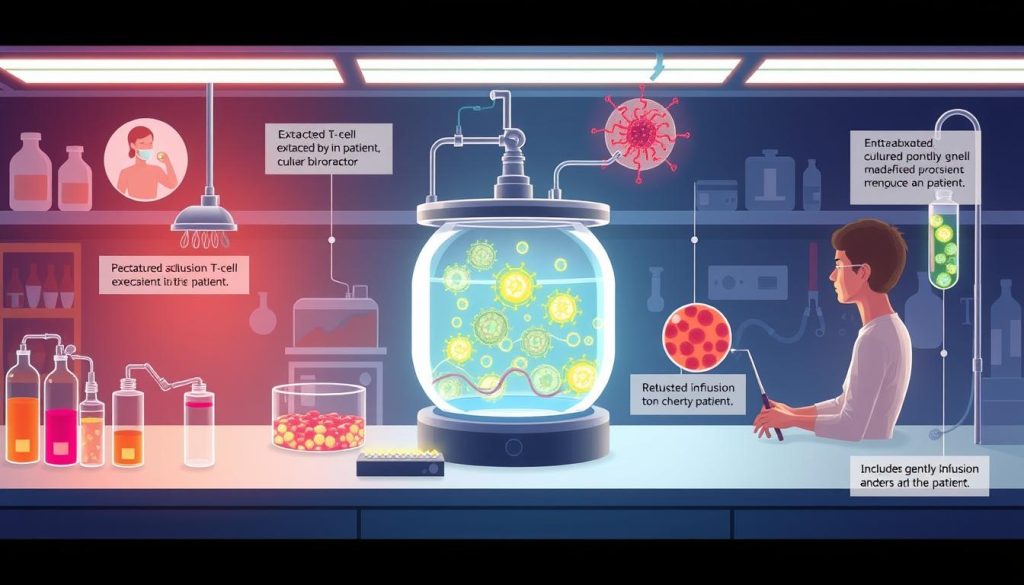
T-Cell Collection and Manufacturing
After getting the green light, the next step is collecting T-cells. This is done through a process called leukapheresis. The T-cells are then taken to a lab for special work.
In the lab, the T-cells are changed to find and attack cancer cells. This is done by adding chimeric antigen receptors (CARs).
Lymphodepletion and CAR T-Cell Infusion
Before getting the CAR T-cells, patients get chemotherapy. This is called lymphodepletion. It makes room for the CAR T-cells and lowers side effect risks.
After that, the patient gets the CAR T-cells. These cells are now ready to find and fight cancer cells.
Post-Infusion Monitoring and Follow-Up
After getting the CAR T-cells, patients are watched closely. The healthcare team checks their health and how the treatment is working. This is done regularly.
Patients might need to stay close to the treatment center for a while. This is to make sure they are okay and to handle any problems.
Throughout the therapy, patients get help from a team of experts. This team includes doctors, nurses, and social workers. They all work together to give the best care and support.
Eligibility Criteria for CAR T-Cell Therapy
CAR T-cell therapy is a new hope for some blood cancer patients. But, not everyone can get this treatment. It’s important to know the CAR T-cell therapy eligibility rules for those looking into it.
To see if someone can get CAR T-cell treatment, several things are checked:
- They must have a specific blood cancer, like B-cell acute lymphoblastic leukemia or diffuse large B-cell lymphoma.
- They need to have good organ function, like the heart, lungs, and kidneys.
- Their treatment history is looked at, including how well they responded to previous treatments.
- They must be healthy enough to handle the therapy’s side effects.
Age is also a big factor. CAR T-cell therapy is approved for kids and adults with certain cancers. But, the age range depends on the cancer type and the CAR T-cell product.
“CAR T-cell therapy has changed how we treat some blood cancers. But, it’s not for everyone. It’s key to talk to a cancer center to see if it’s right for you or your loved one.”
The table below shows the FDA-approved CAR T-cell therapies and who can get them:
| CAR T-Cell Product | Approved Indications | Age Range |
|---|---|---|
| Kymriah | B-cell ALL, DLBCL | up to 25 years, 18 years and older |
| Yescarta | DLBCL, PMBCL, FL | 18 years and older |
| Tecartus | MCL, B-cell ALL | 18 years and older |
| Breyanzi | DLBCL, PMBCL, FL | 18 years and older |
| Abecma | Multiple Myeloma | 18 years and older |
As research goes on and new CAR T-cell therapies come, more cancers and patients might be included. If you’re thinking about CAR T-cell therapy, talk to a cancer center. They can check if you’re eligible and discuss the treatment’s risks and benefits.
Insurance Coverage and Financial Assistance for CAR T-Cell Therapy
Dealing with the cost of CAR T-cell therapy can be tough for patients and their families. But, there are ways to help pay for this new treatment. These include private insurance, government programs like Medicare and Medicaid, and financial help from treatment centers and nonprofits.

Private Insurance Coverage
Many private insurance plans now cover CAR T-cell therapy for those who qualify. The details of coverage can change based on the plan and the patient’s condition. It’s key for patients to talk with their insurance and healthcare team to know what they’ll pay and what’s covered.
Medicare and Medicaid Coverage
Medicare, for people 65 and older or with certain disabilities, covers CAR T-cell therapy if it’s needed. Medicaid, for low-income people, might also cover it, but it depends on the state.
| Program | Eligibility | Coverage |
|---|---|---|
| Medicare | Age 65+ or certain disabilities | Covers CAR T-cell therapy when medically necessary |
| Medicaid | Low-income individuals | Coverage varies by state |
Financial Assistance Programs
Many places that offer CAR T-cell therapy have financial help programs. These can include payment plans, grants, or partnerships with nonprofits that help cancer patients. Some drug makers also have programs to help with treatment costs.
“We understand that the cost of CAR T-cell therapy can be a significant burden for patients and their families. That’s why we work closely with our patients to explore all available financial assistance options and ensure they can access this life-saving treatment.”
Traveling for CAR T-Cell Therapy: Considerations and Resources
Traveling for CAR T-cell therapy requires planning for accommodations and transportation. Treatment centers offer support to ease these challenges. This ensures a smooth treatment process.
Accommodations near the treatment center are key. Patients may stay for weeks during treatment and follow-up visits. Options include:
- Extended stay hotels or furnished apartments
- Ronald McDonald House or similar charitable housing programs
- Discounted rates at partner hotels through the treatment center
Transportation is also important. Patients need to arrange for:
- Flights or long-distance ground transportation to the treatment location
- Local transportation between the accommodations and treatment center
- Accessible transportation options, if mobility is a concern
“The support services provided by the treatment center were invaluable in helping us navigate the challenges of traveling for CAR T-cell therapy. They connected us with affordable accommodations and reliable transportation, allowing us to focus on my treatment and recovery.” – Sarah, CAR T-cell therapy patient
Many treatment centers have dedicated patient support teams. They assist with:
| Support Service | Description |
|---|---|
| Accommodation recommendations | Providing a list of nearby hotels, apartments, or charitable housing options |
| Transportation guidance | Offering information on local transportation services, parking, and accessibility |
| Financial assistance programs | Connecting patients with resources to help cover travel and lodging expenses |
| Emotional support | Offering counseling services and support groups for patients and caregivers |
Working with the treatment center’s support team helps. Careful planning for accommodations and transportation reduces stress. This way, patients and caregivers can focus on treatment and recovery.
Future Expansion of CAR T-Cell Therapy Availability
CAR T-cell therapy is showing great results in fighting blood cancers. Researchers and companies are working hard to make it more available. They are focusing on new trials, getting approvals, and making more of the treatment.
Ongoing Clinical Trials and Research
Many trials are looking into using CAR T-cell therapy for more cancers, even solid ones. They want to make the treatment better, safer, and last longer. Scientists are also trying to solve problems like different cancer cells and how tumors hide from the immune system.
Regulatory Approvals and Market Access
As trials show CAR T-cell therapy works well, more approvals are expected. This will let more patients get the treatment. Working together, companies and regulators will help make these therapies available faster.
Increasing Manufacturing Capacity and Efficiency
One big challenge is making CAR T-cell therapy quickly and in large amounts. Efforts are underway to make the process faster and cheaper. New technologies and better quality control will help make the treatment more accessible to people all over the world.
The future of CAR T-cell therapy is very promising. With ongoing research, support from regulators, and improvements in making the treatment, more people will have hope against cancer.
Collaborating with Your Healthcare Team to Access CAR T-Cell Therapy
Working closely with your healthcare team is key when considering CAR T-cell therapy. Your oncologist, nurses, and support staff are vital. They guide you through the treatment and help you access this innovative therapy.
Your oncologist will check if you’re eligible for CAR T-cell therapy. They look at your diagnosis, past treatments, and health. They’ll talk about the therapy’s benefits and risks to help you decide if it’s right for you.
Nurses and support staff are also important in your care. They teach you about the treatment, manage side effects, and offer emotional support. Working with your healthcare team ensures you get the best care and have a good chance of success with CAR T-cell therapy.
“The collaboration between patients and their healthcare team is the foundation for successful CAR T-cell therapy outcomes. Open communication, trust, and shared decision-making are key to navigating this complex treatment process together.”
Your healthcare team will also help with the practical side of CAR T-cell therapy. They’ll arrange travel, accommodations, and insurance coverage. Their support lets you focus on your health and well-being while pursuing this potentially life-saving treatment.
Patient Stories: Experiences with CAR T-Cell Therapy at Different Treatment Centers
CAR T-cell therapy is a life-changing treatment for many with blood cancers. We share stories of those who have received this treatment at top centers in the U.S.
“I was diagnosed with diffuse large B-cell lymphoma and had exhausted all conventional treatment options. That’s when my oncologist recommended CAR T-cell therapy at Memorial Sloan Kettering Cancer Center. The process was intense, but the support I received from the medical team was incredible. Today, I’m in remission and grateful for this second chance at life.” – Sarah, 45, New York
Sarah’s story shows the power of CAR T-cell therapy. Others at places like the University of Pennsylvania’s Abramson Cancer Center and MD Anderson Cancer Center have also shared their experiences:
| Patient | Age | Diagnosis | Treatment Center | Outcome |
|---|---|---|---|---|
| Michael | 28 | Acute Lymphoblastic Leukemia | University of Pennsylvania’s Abramson Cancer Center | Remission |
| Laura | 62 | Multiple Myeloma | MD Anderson Cancer Center | Stable Disease |
| David | 54 | Mantle Cell Lymphoma | Dana-Farber Cancer Institute | Remission |

These CAR T-cell therapy patient stories show the varied treatment experiences and outcomes. Despite the differences, the hope and promise of this therapy remain strong.
More patients sharing their stories highlight the importance of access to CAR T-cell therapy. It can greatly impact those with advanced blood cancers. These stories prove the progress in cancer care and the hard work of healthcare professionals.
Where is car t-cell therapy available: A Comprehensive Guide
This guide helps patients and their families understand CAR T-cell therapy. We’ve looked at FDA-approved treatments, their uses, and top US centers. We also talked about CAR T-cell therapy worldwide and how to choose the right center.
Getting CAR T-cell therapy involves several steps. These include the first visit, T-cell collection, making the cells, and the infusion. Knowing about eligibility, insurance, and financial help is key. For those traveling, we’ve shared tips and resources to ease the trip.
As research and approvals grow, more people will get CAR T-cell therapy. Working with your healthcare team and staying updated is important. We hope this guide helps you find CAR T-cell treatment and understand the process.
FAQ
Q: What is CAR T-cell therapy and how does it work?
A: CAR T-cell therapy is a new way to fight cancer. It uses your own immune cells to attack cancer. This gives hope to those with certain blood cancers.
Q: Where is CAR T-cell therapy available?
A: You can find CAR T-cell therapy at top cancer centers in the U.S. Places like Dana-Farber Cancer Institute in Boston and Memorial Sloan Kettering Cancer Center in New York offer it. Also, University of Pennsylvania’s Abramson Cancer Center in Philadelphia and MD Anderson Cancer Center in Houston have it.
Q: What are the FDA-approved CAR T-cell therapies?
A: There are five FDA-approved CAR T-cell therapies. These include Kymriah, Yescarta, Tecartus, Breyanzi, and Abecma. They target different blood cancers like leukemia and lymphoma.
Q: What criteria should I consider when selecting a CAR T-cell therapy treatment center?
A: Look for a center with experience in CAR T-cell therapy. A team approach and support services are important. Also, check if they’re involved in clinical trials.
Q: What is the process of receiving CAR T-cell therapy?
A: Getting CAR T-cell therapy involves several steps. First, you’ll have a consultation to see if you qualify. Then, your T-cells are modified and infused back into you. Close monitoring is key to manage side effects.
Q: Am I eligible for CAR T-cell therapy?
A: Eligibility depends on your cancer type, stage, and health. If you have blood cancer and haven’t responded to other treatments, you might be eligible. Talk to a healthcare provider to find out.
Q: Is CAR T-cell therapy covered by insurance?
A: Insurance coverage for CAR T-cell therapy varies. Many plans, including Medicare and Medicaid, cover it. But, you might face high costs. Work with your team and insurance to understand your coverage and find financial help.
Q: What should I consider when traveling for CAR T-cell therapy?
A: Traveling for therapy requires planning. Consider transportation, where to stay, and support services. Treatment centers often help with these needs. Many organizations also offer support for patients and families.
Q: What does the future hold for CAR T-cell therapy availability?
A: The future of CAR T-cell therapy is bright. More trials and research are underway. As approvals grow and manufacturing improves, more people will have access to this treatment.













